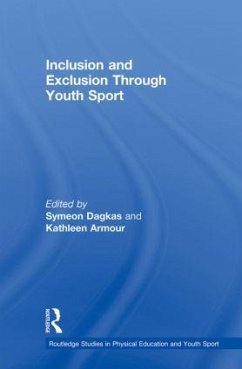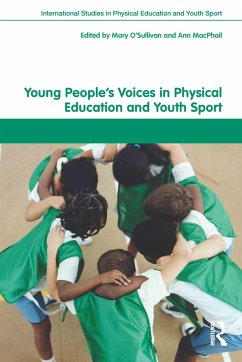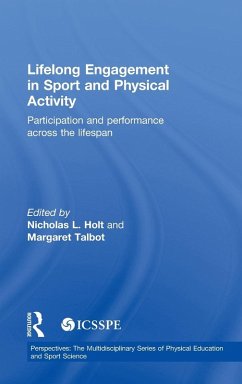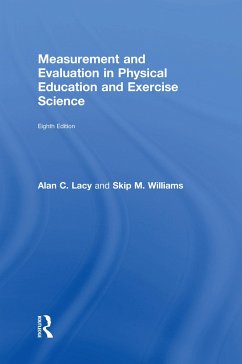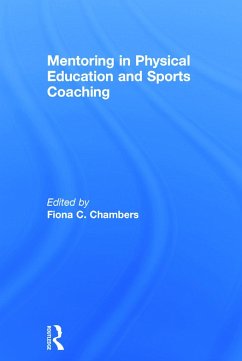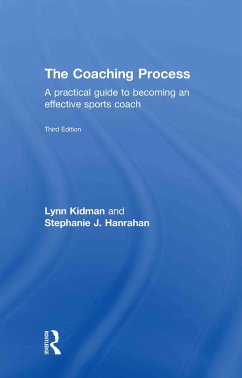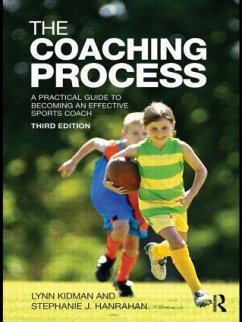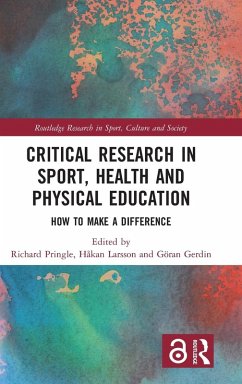
Inclusion and Exclusion Through Youth Sport
Versandkostenfrei!
Versandfertig in 1-2 Wochen
177,99 €
inkl. MwSt.
Weitere Ausgaben:

PAYBACK Punkte
89 °P sammeln!
'We can reach far more people through sport than we can through political or educational programmes. In that way, sport is more powerful than politics. We have only just started to use its potential to build up this country. We must continue to do so.' - Nelson Mandela Nelson Mandela's statement reflects a widely held view that sport can contribute in unique and far-reaching ways to the delivery of important social outcomes. But is this really the case? Can sport bring people from different backgrounds together, and in so doing act as a force for social transformation and change? In the langua...
'We can reach far more people through sport than we can through political or educational programmes. In that way, sport is more powerful than politics. We have only just started to use its potential to build up this country. We must continue to do so.' - Nelson Mandela Nelson Mandela's statement reflects a widely held view that sport can contribute in unique and far-reaching ways to the delivery of important social outcomes. But is this really the case? Can sport bring people from different backgrounds together, and in so doing act as a force for social transformation and change? In the language of policymakers and practitioners, can sport contribute to social inclusion or could it be argued that sport acts to marginalize and disadvantage some groups in society? In other words could sport reinforce, rather than challenge, social inequality? Focusing on youth sport as a touchstone sector of sport in society, this book examines the theoretical and empirical bases of arguments for the role of sport in social inclusion agendas. Authors are drawn from around the world and offer critical perspectives on assumptions underpinning the bold claims made about the power of sport. This book represents the most up-to-date and authoritative source of knowledge on inclusion and exclusion in youth sport. As such, it is essential reading for those who want to use sport to 'make a difference' in young people's lives. It is, therefore, recommended for students, researchers, policy makers and practitioners working in sports development, sports coaching, sport studies or physical education.




